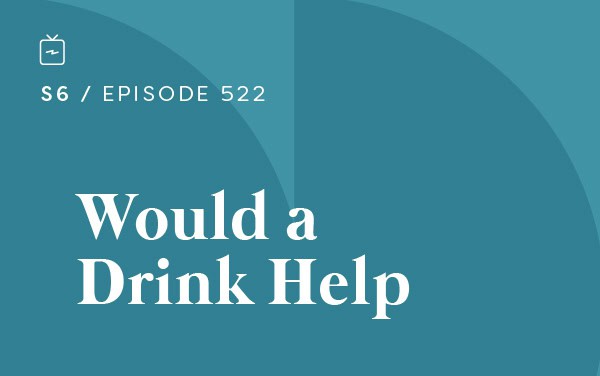Podcast: Play in new window | Download
Subscribe to the Recovery Elevator Podcast Apple Podcasts | RSS | More
Today we have Jeremy. He is 43 years old and lives in Portland, Maine. He took his last drink on January 23rd, 2019.
Sponsors for this episode include:
Better Help – 10% off of your first month
Recovery Elevator is going back to Peru in October 2025. On this 10-night, 11-day trip of a lifetime, we will be hiking the Inca Trail and participating in two service projects. Registration has been open for two weeks and we have about five or six spots left.
[01:40] Thoughts from Paul:
About three weeks ago, we had a gentleman named Nate share his story for one of our dry January sessions. He mentioned that just before he quit drinking, his spouse poured out a bottle of Jameson Irish whiskey onto their lawn. The whiskey killed a circular patch of grass, making it an area where conditions were no longer suitable for growth, and Nate eventually had to replace the entire section of grass.
Today’s episode is titled “Would a Drink Help?”. This phrase is often depicted in movies, TV, and other media after a long day or stressful event. For those of us who find it difficult to have just one, a drink will never help. It’s not the fifth or the 10th drink that gets you into trouble, it’s always the first. Because it leads you to have the fifth or 10th drink which will leave a dead ring of grass inside us.
Unlike grass, our brains and bodies can heal from the poison. So, in answer to the question of “would a drink help?” the answer is always no, and it will always leave you in a worse position. We wouldn’t ask this question about any other substance either.
It takes time before the neurons in the brain that a drink can help stop firing together so go easy on yourself.
[07:11] Paul introduces Jeremy:
Jeremy is 43, married with no kids and works in tech consulting. They have an English bulldog and for fun, Jeremy enjoys snowboarding, hiking, and music. He is also a house music DJ and plays multiple instruments.
Jeremy first began to recognize that his drinking was an issue for him in his twenties. He began drinking in his teens and used alcohol to help him escape feelings around an assault that happened when he was 15. Since Jeremy didn’t participate in team sports in school, he spent time with people that did other things like drink and do drugs.
After taking a six-month break from drinking when he was 22, Jeremy thought he was fine since he was able to quit for a period of time. He moved to Boston, made some friends there and began grad school. He shares that his drinking didn’t look out of control but as he approached his 30s, he realized that his friends were starting to slow down, have families and he was still wanting to spend time in bars. Over time his drinking was creating issues with his wife, and he was starting to feel unhappy both when he was drinking and when he was not. Things looked ok on the outside, but inside they were breaking down. The blackouts were becoming a major issue for him, and he couldn’t see a way out.
In 2018, Jeremy and his wife had a fight and that’s when he broke down and told her he was struggling. He started reading books about quitting but was still struggling after a few weeks. A note from his wife was a catalyst to seek help from therapy and he discovered SMART Recovery. He kept going back and made connections with others in the meetings.
Jeremy shares how there are so many ways to get sober now and that you don’t have to hit rock bottom to quit drinking. He says you have to get over the fear and just focus on the day in front of you. Since quitting drinking Jeremy says he has learned that he doesn’t need alcohol to feel comfortable anymore. He is comfortable with who he is now and with therapy has helped learn to love himself and forgive himself for the past.
Recovery Elevator
You took the elevator down; you got to take the stairs back up.
We can do this.



